Ennio Morricone denies criticising Quentin Tarantino
- Published
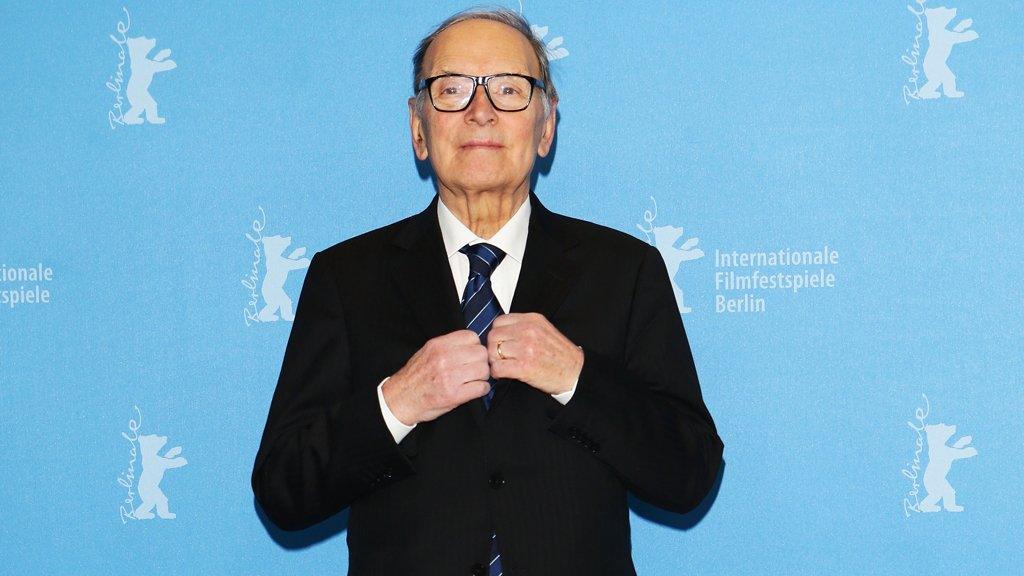
Morricone's famous Spaghetti Western scores were re-purposed in Tarantino's films Kill Bill and Inglourious Basterds
Ennio Morricone has denied criticising Quentin Tarantino over his use of music.
In 2013, the Italian composer was reported as saying, external he wouldn't work with Tarantino because he "places music in his films without coherence".
But the 87-year-old told the BBC he had no issues with how the director incorporated his older works into films like Kill Bill and Django Unchained.
"On the contrary, I was very, very flattered," he said.
"The fact that my music, which had been written for other films, could be adapted to the poetry of Quentin Tarantino's film-making was a great gift for me.
"The only thing I criticised of Quentin Tarantino was a single scene in a single movie which, for me, was too violent and too ghastly. I couldn't watch it."
Speaking through an interpreter, the maestro said his original comments had been mis-reported, adding: "People should pay a lot of attention when they write something down."
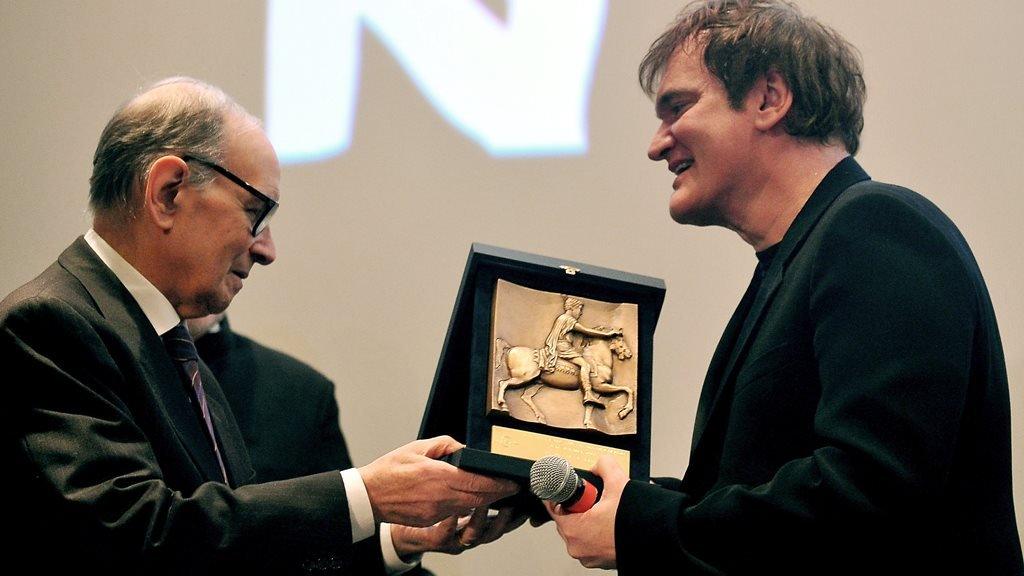
Tarantino presented Morricone with a lifetime achievement prize at the Rome Film Festival in 2013
The pair have now collaborated for the first time, with the Italian maestro penning the soundtrack for Tarantino's upcoming film The Hateful Eight.
It marks the first time the composer has scored a Western since his career-defining work with Sergio Leone on films such as The Good, The Bad and The Ugly; and Once Upon a Time in the West.
It is also a first for Tarantino - who has never commissioned a full orchestral score for one of his films before, preferring to rely on old soundtracks and classic pop records.
Morricone says it was Tarantino's dense script that persuaded him to work on the project.
"It was this thick," he says, indicating a document several times thicker than War and Peace. "He actually came to Rome just to convince me, to my house.
"It was very easy for me to say yes because the script was very, very relevant and interesting and full of detail."
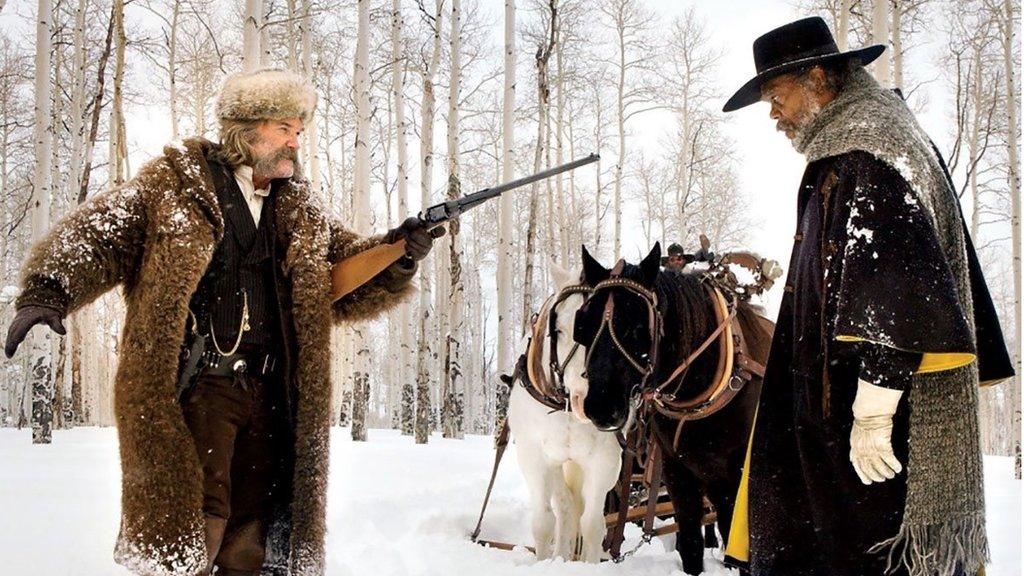
The Hateful Eight is Tarantino's first film to carry a full orchestral score - although tracks by The White Stripes and Roy Orbison also appear on the soundtrack
The Hateful Eight, which is released in January, reunites Tarantino with several of his regular players - Samuel L Jackson, Kurt Russell, Tim Roth, Michael Madsen and Bruce Dern - as well as newcomers Jennifer Jason Leigh, Demian Bichir and Channing Tatum.
Set roughly a decade after the US Civil War, it finds an eclectic group of law-keepers, outlaws, mercenaries, bounty hunters and fugitives trapped in a stagecoach waypoint by a massive snowstorm. As the plot unfurls, they begin to wonder whether they'll make it out alive.
The score's key movement is a seven-minute suite called L'Ultima Diligenza per Red Rock - a piece of which Morricone is particularly proud.
"The main instruments introducing this piece are the bassoon, the contra-bassoon and the tuba," he says. "And this is very strange because I have never done that in the past.
"The sound these instruments produce can express the drama, the rage, the despair and the irony that are the main themes of Tarantino's story. They are a healthy, bodily sound. They also express a criticism towards the leading characters of the film."
A sinister, brooding passage of music, it will form the centrepiece of the composer's world tour next year, celebrating his 60 years in the film industry.
Despite his age - and the lingering pain from a back injury he sustained last year - Morricone says he is "looking forward" to the concerts, and finds playing themes from films such as The Mission, Cinema Paradiso and A Fistful of Dollars an "incredibly gratifying experience".
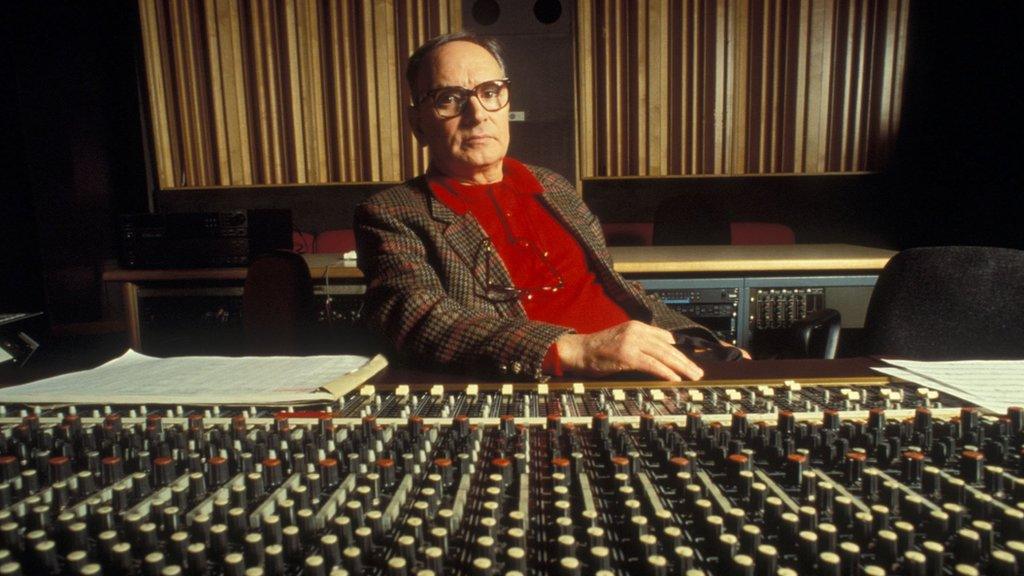
Morricone's compositions contain some of the most recognisable themes in cinematic history
The composer has scored more than 500 films, sold more than 70 million albums, scored a top 10 single in the UK (with Chi Mai in 1982) and received an honorary Oscar - but he has no intention of resting on his laurels.
"I've been working for many years and the sum of all these experiences led me always to improve, to do better," he says.
"Every piece of work I do adds something to my experience and my style, and brings something new."
And had he been able to stomach the violence in Tarantino's latest movie?
"The fact I don't like those sequences is not a problem. It's a question of my personal sensitivity," he says.
"I would go to the extent to say that maybe he can afford to include those violent sequences because it's part of his poetry.
"The world can be a very cruel place and he has a wonderful way of describing this cruelty."
The Hateful Eight is out in the UK on 8 January. Morricone's soundtrack will be released by Decca on 18 December.

- Published18 December 2014
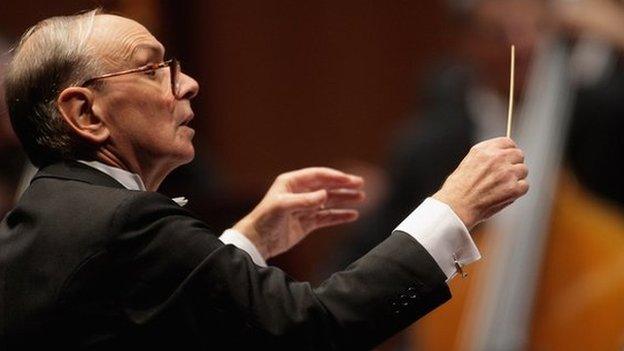
- Published20 May 2014
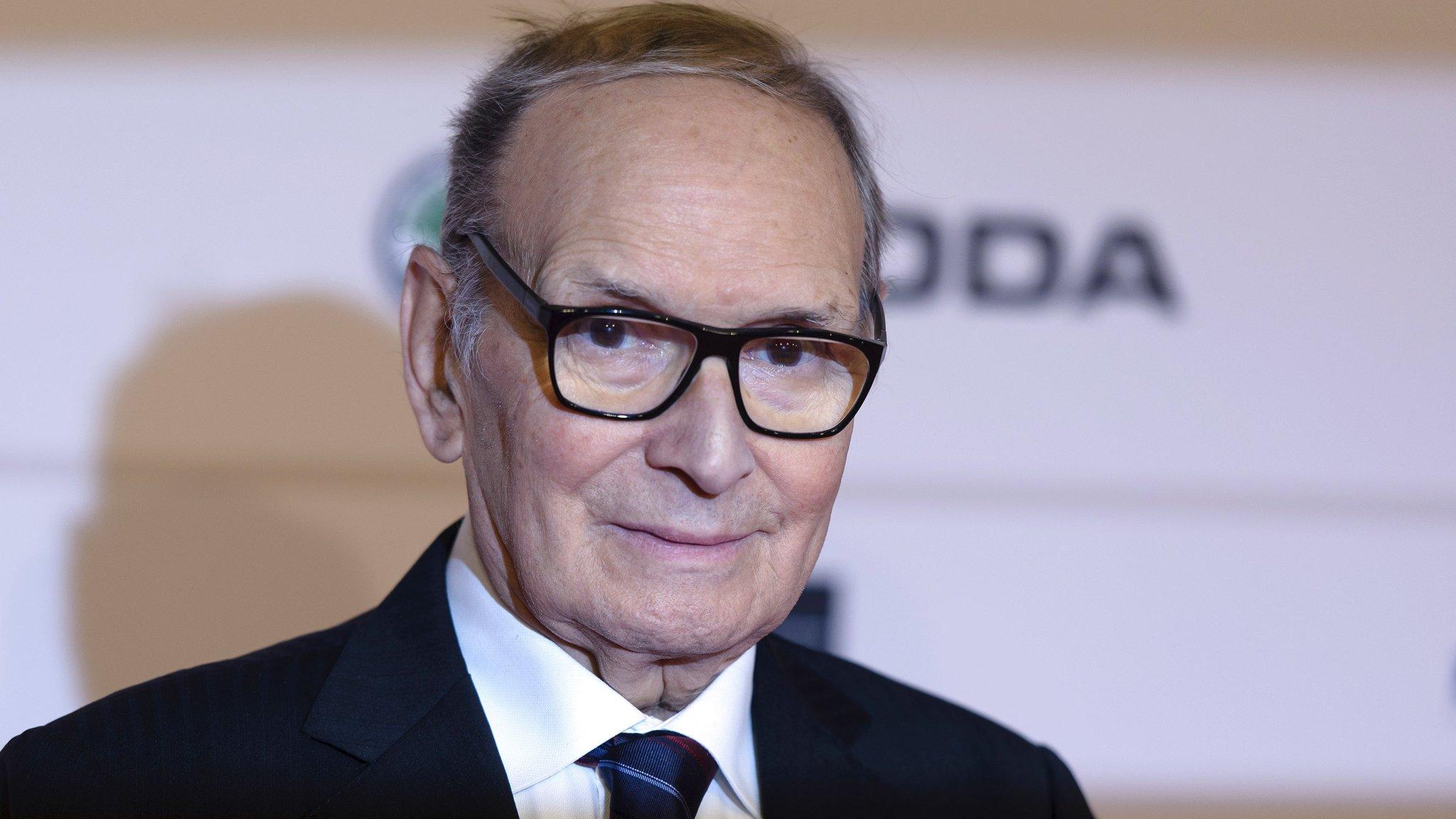
- Published1 June 2011
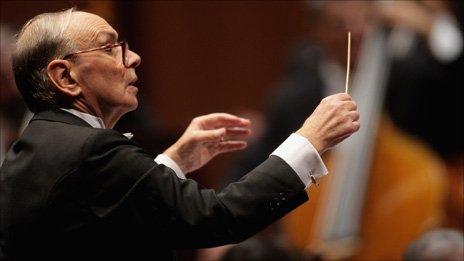
- Published11 August 2011